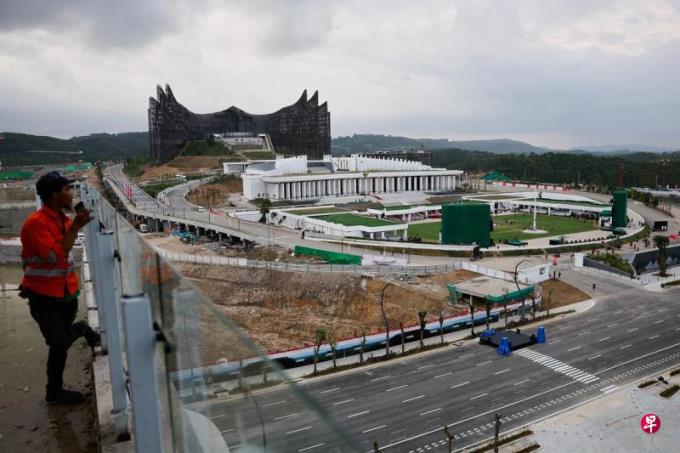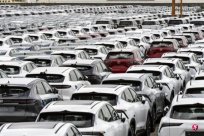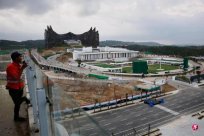
Before creating a macro -building plan in the name of govern the climate crisis, we may wish to think about how to make these cities governors have more resources, do more, solve the most urgent urgent in front of the eyesquestion.
Indonesia chose to open up a new capital in the rain forest to Borneo, a house of Daxing 1,000 kilometers away from Jakarta.The news has been attracting much attention since it was announced and attracted a lot of criticism.In the past year or two, Indonesia has prepared for Jianxin and actively attracts investment. It is far from the Middle East to talk about cooperation, but the process is not smooth and difficult.
Today is Indonesia's Independence Day and is also a node for the transfer of the state power.President Zoko was planned to issue a decree on this day to formally set up the new "Nushan Dala" as the new capital.Zoko himself also proposed that it is still unknown whether it will be postponed by the dates of the relocation of the capital.
The planned Nushan Dala is a key project in Zako.At present, the capital Jakarta not only has severe air pollution and has been attacked by floods, but also caused strata sinking due to long -term super -pumping groundwater.The construction of a new government administrative center is to completely get rid of these governance troubles, and also prepare for the intensified climate change and the rising sea level.
In addition, Indonesia's political leaders also expect to make the new capital into a sustainable forest city, advertising 75%of the green space, so that all institutions and commercial buildings are built in environmentally friendly building materials and methods.
However, although the new capital focuses on environmental protection and develops this so -called green city, it is necessary to cut the original woods and re -plant artificial forests. Many environmentalists do not agree with this approach.In particular, the Lishan Dala project is also the habitat of wild animals such as orangutan and long -nose monkeys. Large -scale development and the interference of future residents' relocation will make people worry that this will greatly endanger the ecology.The price is too big.
Today, in addition to Indonesia, many developing countries have problems such as tight urban resource, traffic congestion, and environmental pollution because of their development pace of development and insufficient governance and planning capabilities.Improvement.The distress faced by the capital is also often the biggest, causing the government to the most headache.
Indonesia's relocation planning, recruitment, and specific plans to implement the difficulties faced in the face of the implementation of the difficulties.Other feasible methods?From the perspective of international experience, solving the practice of "jumping out to build a new city" is basically solved by international experience, but the various problems involved, such as how to retain urban culture, historical significance, collective memory, and take care of the interests of residents.It may not be resolved due to the relocation of the capital to build a city.
Planners must also be more intelligent. In addition to measuring economic and political and disadvantages, consider other elements, such as maintaining a healthy natural environment, continuing and protecting precious and difficult to replace cultural heritage.
This, especially in Southeast Asian countries, must be considered before urban layout and planning.In May of this year, the news of the Thai government's expectations of moving the capital also frequently came out. Some senior Thai officials pointed out that the capital of Bangkok and Jakarta were difficult to adapt to the trend of global changes and the rise of sea level.However, Bangkok, located in central Thailand, is a hub connecting other provinces in Thailand. If it suddenly moves to the south or north, does it have a huge impact on the country's construction and all investments have to be re -planned?I am afraid that this must be discussed from a long -term.
In recent years, a trend of building a future city and smart city has also appeared in the Middle East.For example, Saudi Arabia has developed infrastructure vigorously, which is located in the northwest, covers an area of about 26,500 square kilometers, and has a total investment of 500 billion US dollars (about S $ 659 billion). "Neom" has attracted much attention.NEOM, the raw word, combines the "M" of the ancient Greek "Neo" (referring to all new things) and the Arabic "MOSTAQBAL" (referring to the future).It also shows its anxiety about oil high, hoping to find new possibilities.
Saudi Arabia wants to use money to create a miracle, build a city with renewable energy power, and use walking as the main planning foundation.However, similarly, due to insufficient funds and the government's rude deportation of local tribal residents, the project was covered with a shadow.
In recent years, when talking about problems such as climate and disaster governance, many political decision makers have focused their focus on cities at the forefront of the climate crisis.At the COP28 Climate Summit last year, countries around the world reached the consensus of establishing the "Loss and Damage Fund" to provide funds for developing countries with severe climate change and assist these countries to strengthen their ability to adapt to climate change.However, even if this project is in place, many municipal governments and local governments believe that they are now in financing when they implement green projects or climate management related projects.Many times they cannot directly apply for funds provided by the international community to meet the needs of urban development and governance.
However, mayor or representatives of the municipal government with local related knowledge often be able to adapt to local conditions, propose better urban governance plans, and solve urban diseases in the right medicine.Before creating a spectacular plan to build a spectacular city building in the name of govern the climate crisis, we may wish to think about how to make these city governors have more resources, do more, and solve the most urgent problems in front of them.
The author is the deputy director of the editorial department of Eco-Business, the editorial department of regional environmental media and consulting companies.



